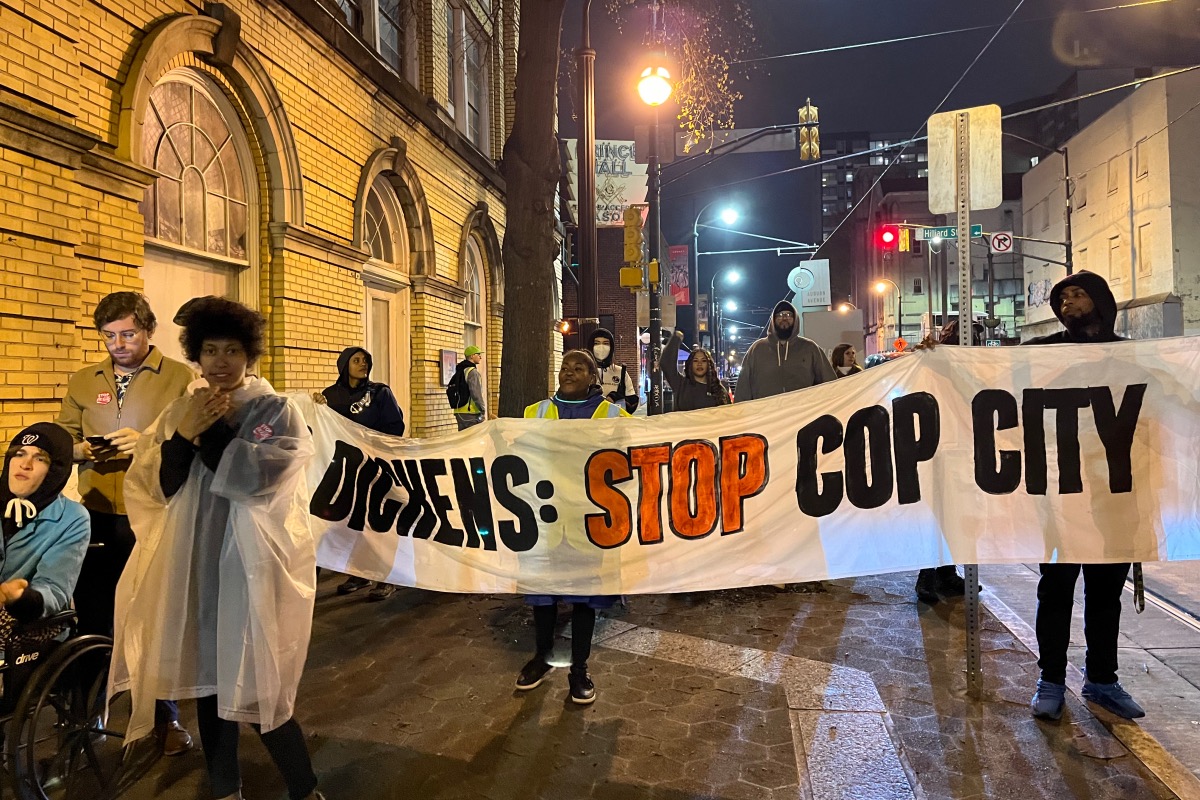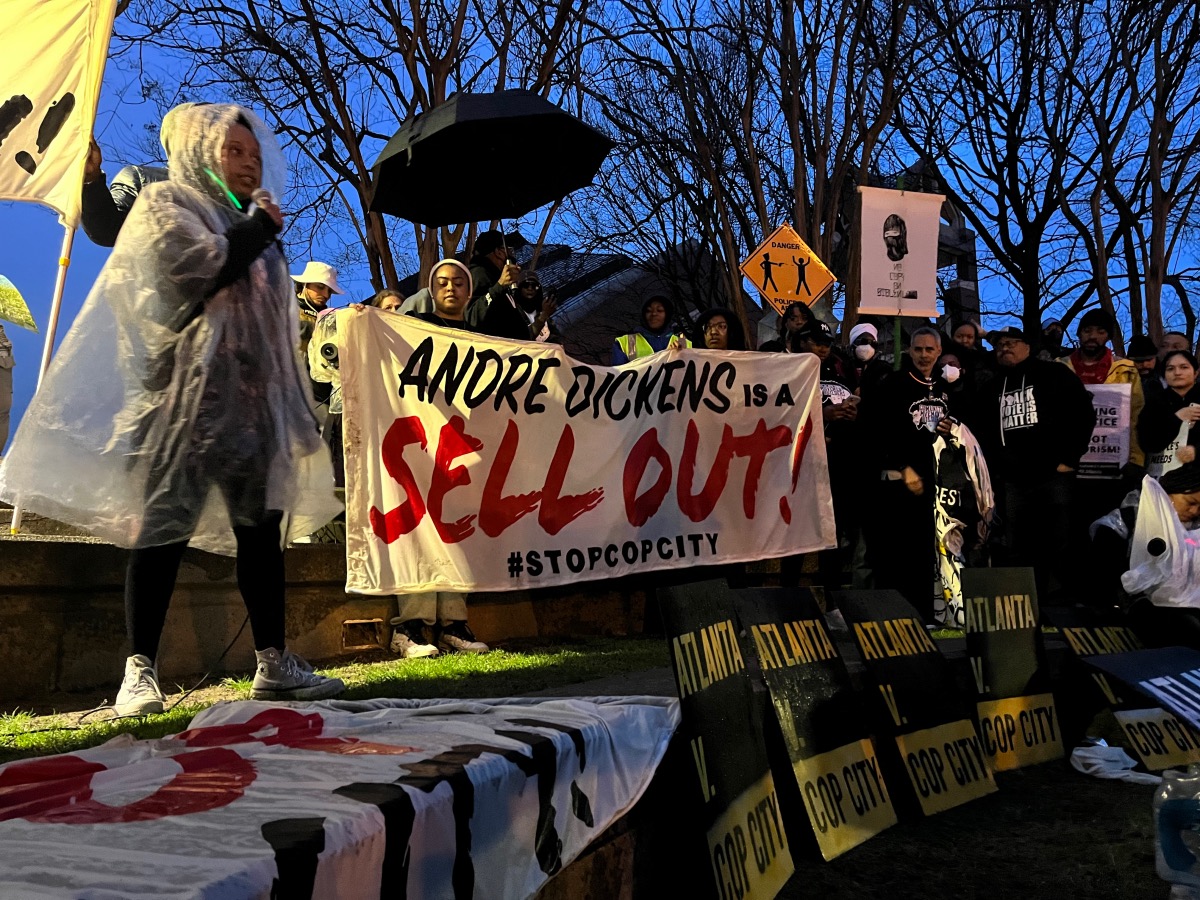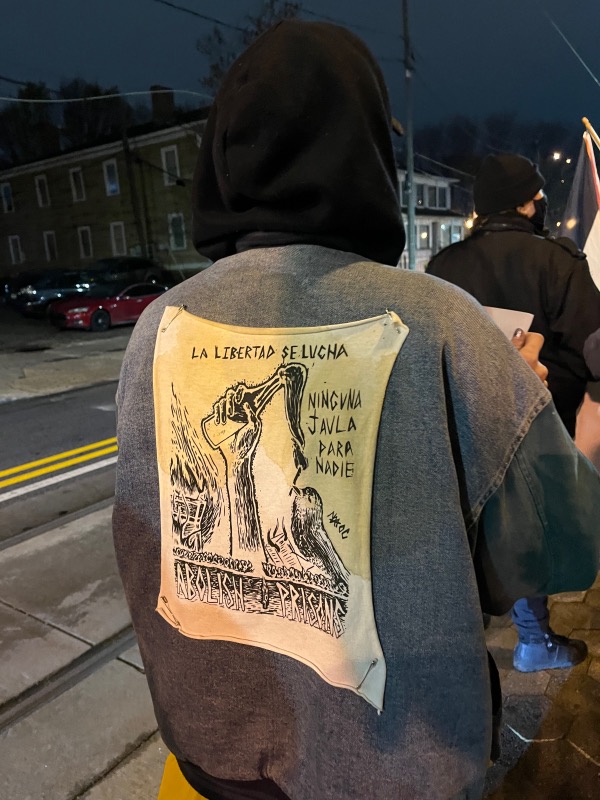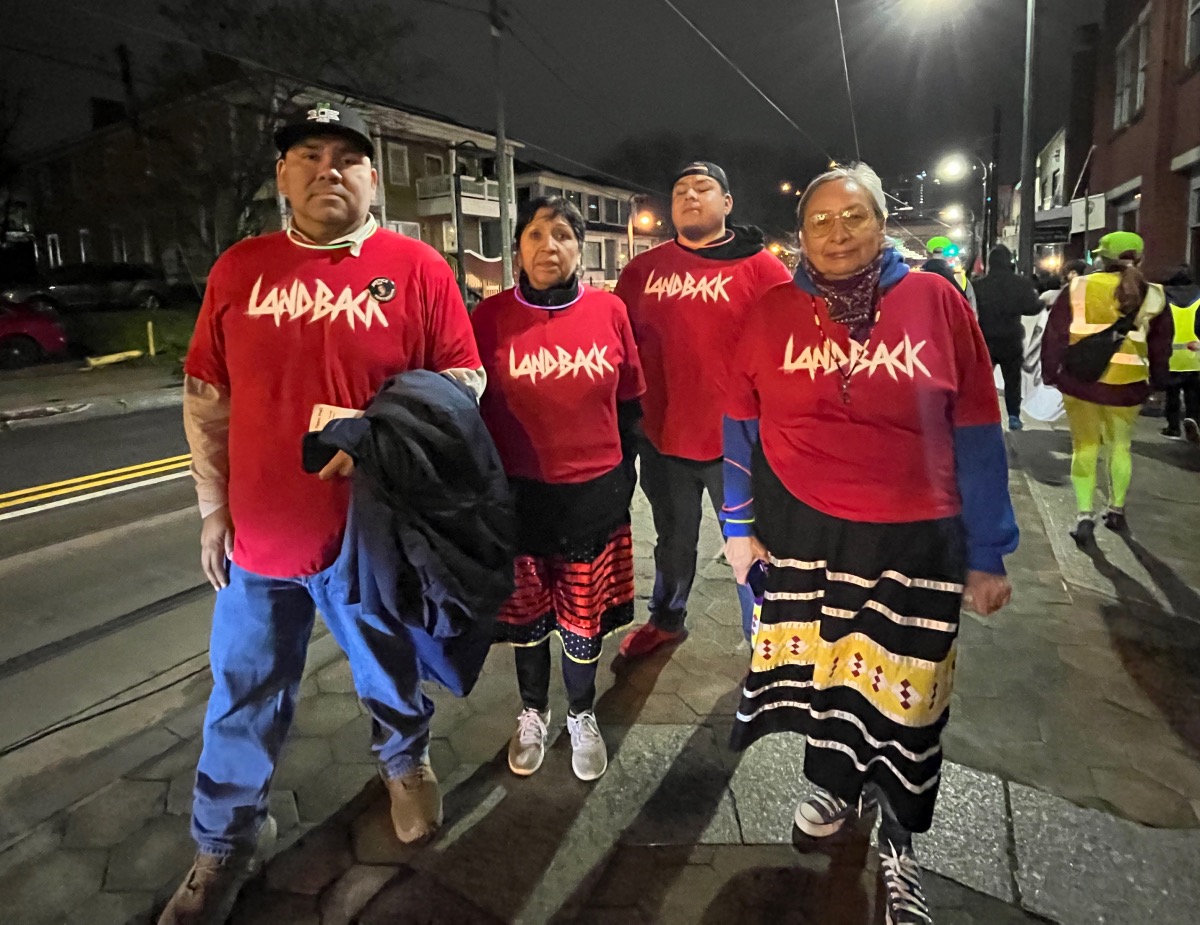

A march against the proposed Atlanta Public Safety Training Center, known as “Cop City,” in Atlanta, Georgia, Friday, March 10, 2023. (Camila Cuevas/Latino Rebels)
On April 1, 2021, Atlanta’s former Democratic mayor, Keisha Lance Bottoms, announced the plan to build a new police and fire training facility.
According to the initial proposal, the $90 million Atlanta Public Safety Training Center, dubbed “Cop City,” will be the largest in the United States. The facility is to include a mock city where police will be trained to suppress protests and quell mass uprisings, practicing with different styles of weapons, helicopters, chemical agents, and explosive devices—and thus further militarizing the already heavily militarized American police force.
The project is funded mainly by private donors. Some confirmed donors are Chick-fil-A, UPS, Coca-Cola, and Norfolk Southern Railway, which is currently being sued by the State of Ohio for a train derailment in East Palestine that released hazardous chemicals.


Protesters hold a banner calling current Atlanta Mayor Andre Dickens a “sellout,” Atlanta, Georgia, Friday, March 10, 2023. (Camila Cuevas/Latino Rebels)
Cop City is slated to be built in the South River Forest, also known as the Weelaunee Forest, home to wetlands that filter rainwater and prevent flooding. Atlanta boasts the largest tree canopy of any major city in America, and the Weelaunee Forest is a crucial part of Atlanta’s fight against global warming.
The proposal to build Cop City motivated people of all backgrounds to unite and organize against it, including Atlanta’s Black residents, various religious organizations, Indigenous people, climate activists, college students, and families affected by police violence.
Activists are using different methods to combat the building of the facility, with several making the Weelaunee Forest their home since July 2022, building platforms in the trees, setting up tents, and living as a community. As with similar encampments in Puerto Rico, where activists are struggling against the privatization of public lands and the destruction of the environment and heritage sites, the occupation of the Weelaunee Forest is done as a form of protest and to garner visibility for the cause.
On September 8, ignoring the pleas of over 1,000 Atlanta residents, the Atlanta City Council voted 10-4 to approve the leasing of 381 acres of land to the Atlanta Police Foundation, thereby green-lighting the building of the massive police training compound.
Then, on December 13, a SWAT team raided the campground where “Stop Cop City” activists were living peacefully, resulting in the arrest of people on charges of domestic terrorism. Police claim that activists threw rocks at patrol units and at the fire station. Activists, meanwhile, say that police used excessive force, rubber bullets, and tear gas on them while conducting a peaceful “tree sit” protest.
On January 18, a multiagency “clearing operation” was conducted to remove activists from the forest. During the raid, a 26-year-old Venezuelan forest defender named Manuel Esteban Paez Terán, who went by “Tortuguita,” died after being shot 57 times by Georgia State Patrol officers. Seven other activists were arrested and charged with domestic terrorism.
While the raid was a thoroughly planned operation, the Georgia Bureau of Investigation (GBI) claims there is no body or dash camera footage of the incident. The GBI also states that Tortuguita failed to follow officers’ commands and allegedly opened fire on one of them, injuring him.
Friends, family, and activists are skeptical of the GBI’s claims. Feeling the GBI’s narrative of the events was inconsistent and vague, they demanded an independent investigation and autopsy.
Family and friends describe Tortuguita as loving, generous, and community-driven. Tortuguita graduated cum laude from Florida State University and volunteered to feed people without homes in Tallahassee, Florida.
The killing of Tortuguita sparked national and international outrage, with hundreds of people gathering in downtown Atlanta on January 21 to protest cop city and mourn the death of Tortuguita. Some of the protesters allegedly threw rocks at buildings, broke windows, and set fire to a patrol car. Six people were arrested and charged with domestic terrorism.


Camila Cuevas/Latino Rebels
On March 4, various activists including Atlanta Forest Defenders and their allies from around the world began a “week of action” against Cop City featuring rallies, a music festival, direct actions, and media outreach. On Sunday, March 5, over 1,000 people attended the family-friendly music festival.
At the same time, a separate group of protesters rallied and marched through the Weelaunee Forest to protest the murder of Tortuguita and reclaim the land as public property. Authorities reported that protesters were setting construction equipment and vehicles on fire.
Police raided the music festival, with festivalgoers saying later that police chased and detained people at random. They also said that police used excessive force and tased and brutalized people indiscriminately. Thirty-five festivalgoers were detained and twelve were released—all Georgia residents. Twenty-two of them were charged with domestic terrorism and denied bond. Tom Jurgens, a legal observer, was the only person granted a bond.
Activists claim that the authorities are creating a narrative that blames “outside agitators,” not Atlanta residents themselves, as the driving force behind the Stop Cop City movement. Law enforcement uses this well-known tactic to disrupt and end social movements.
“The language being used by police, calling those arrested ‘outside agitators,’ is meant to separate protesters and meant to criminalize and detach a movement from its homegrown origins,” explained Kamau Franklin, director of Community Movement Builders, a collective of Black community organizers.


Camila Cuevas/Latino Rebels
The arrests and domestic terrorism charges have not deterred activists. On Friday, March 10, hundreds gathered outside the King Center near downtown Atlanta to hear speakers voice their opposition against Cop City.
Tortuguita’s mother was one of the first to speak, calling Tortuguita a lover and a hero. She said she prays that “the blood of my son will speak in all of our hearts” and that the Stop Cop City movement will win because it is driven by love, not money.
After the first set of speeches ended, the crowd marched toward the Atlanta Police Foundation headquarters a few blocks away. The building was boarded up, and there was a very heavy police presence in the area. Most officers were equipped with rifles and riot gear. There was also a helicopter monitoring the protest overhead from start to finish.
Once the protesters were gathered in front of ATF headquarters, a second group of speakers began to express their opposition to the proposed police training facility. The protest remained peaceful until the end, with no arrests made that night.
On Monday, Tortuguita’s family held a press conference to announce the results of a second autopsy performed at the family’s request. According to the family’s lawyer, “both Manuel’s left and right hands show exit wounds in both palms. The autopsy further reveals that Manuel was most probably in a seated position, cross-legged, when killed.”
The family’s lawyer demanded answers from authorities and stated that the GBI has repeatedly declined to meet, talk, or present evidence to the family. The lawyer also said that the GBI prevented the release of information, in the form of video footage, by the City of Atlanta.
Tortuguita’s family has filed a lawsuit for the release of information under the Georgia Open Records Act.
***
Camila Cuevas is a Chilean expat, activist, and domestic and sexual violence advocate. Instagram: @issanalterego



Tuff. I oppose the activists. No one cares